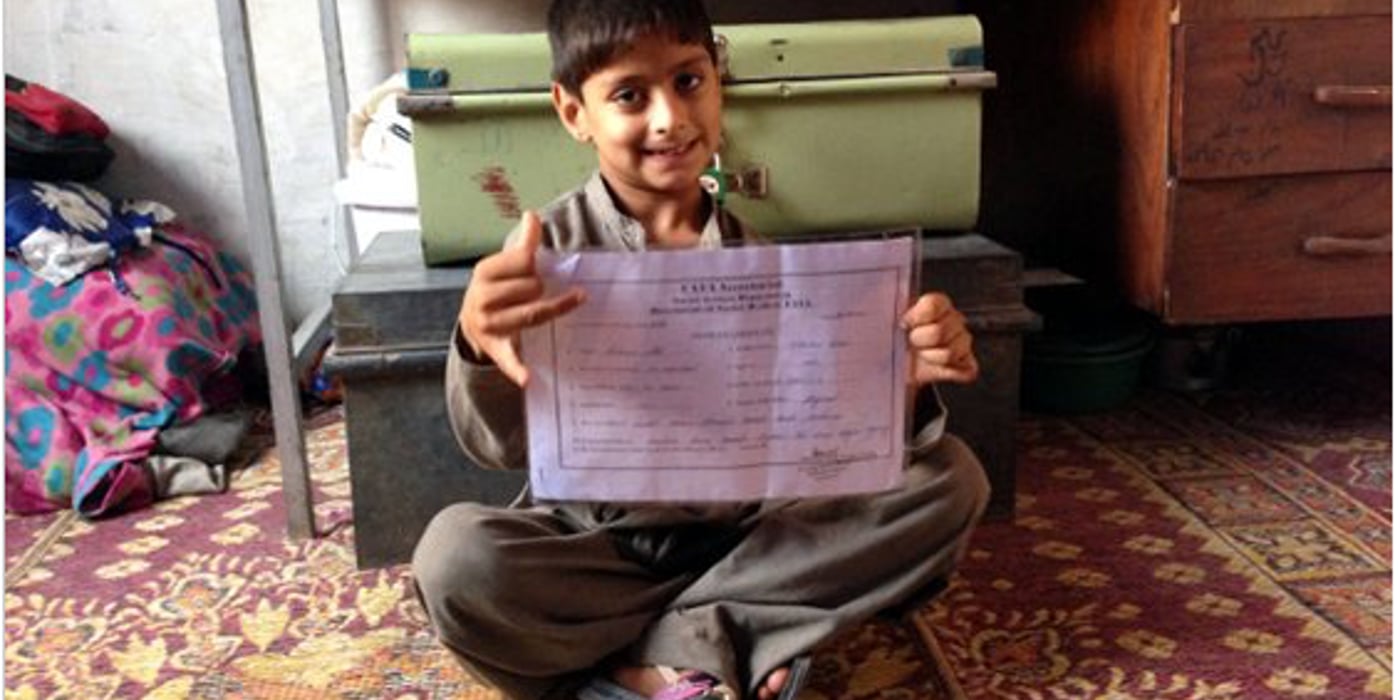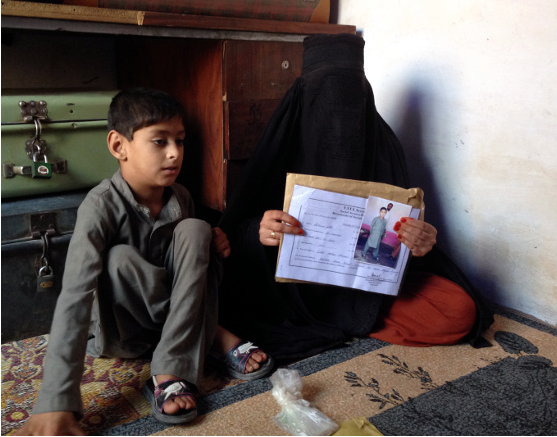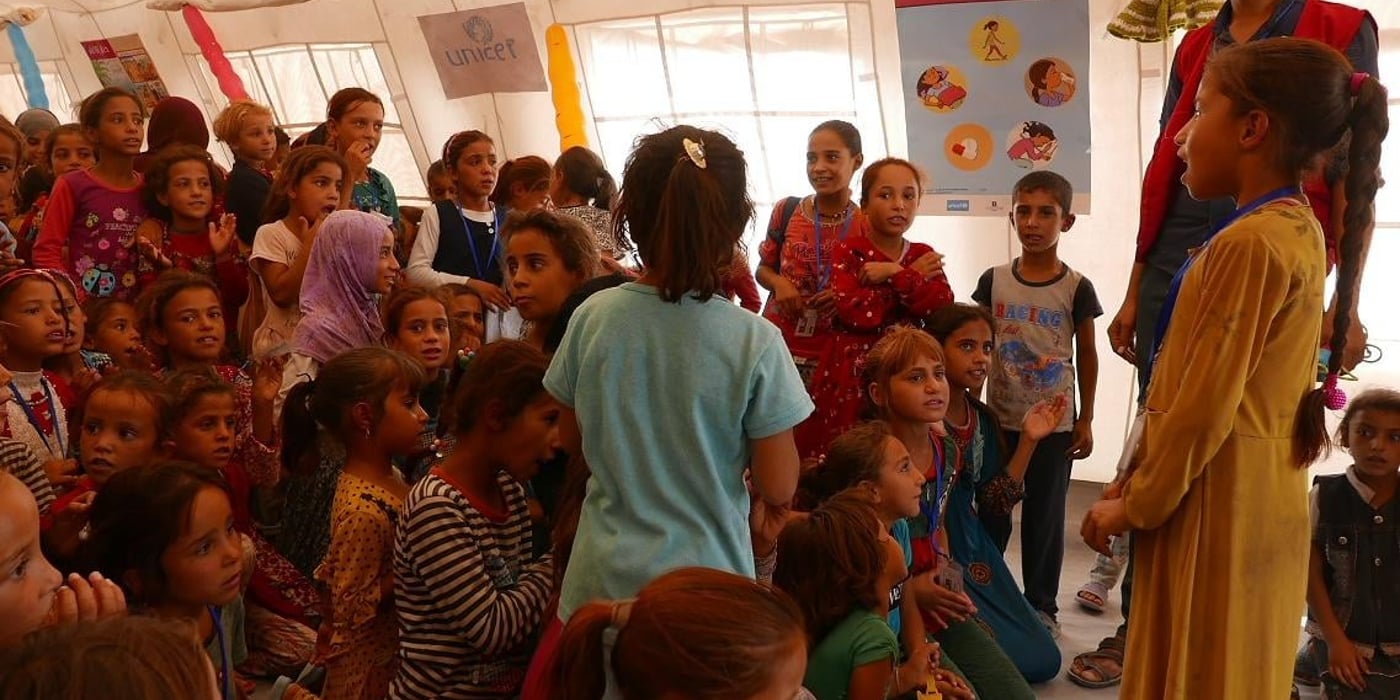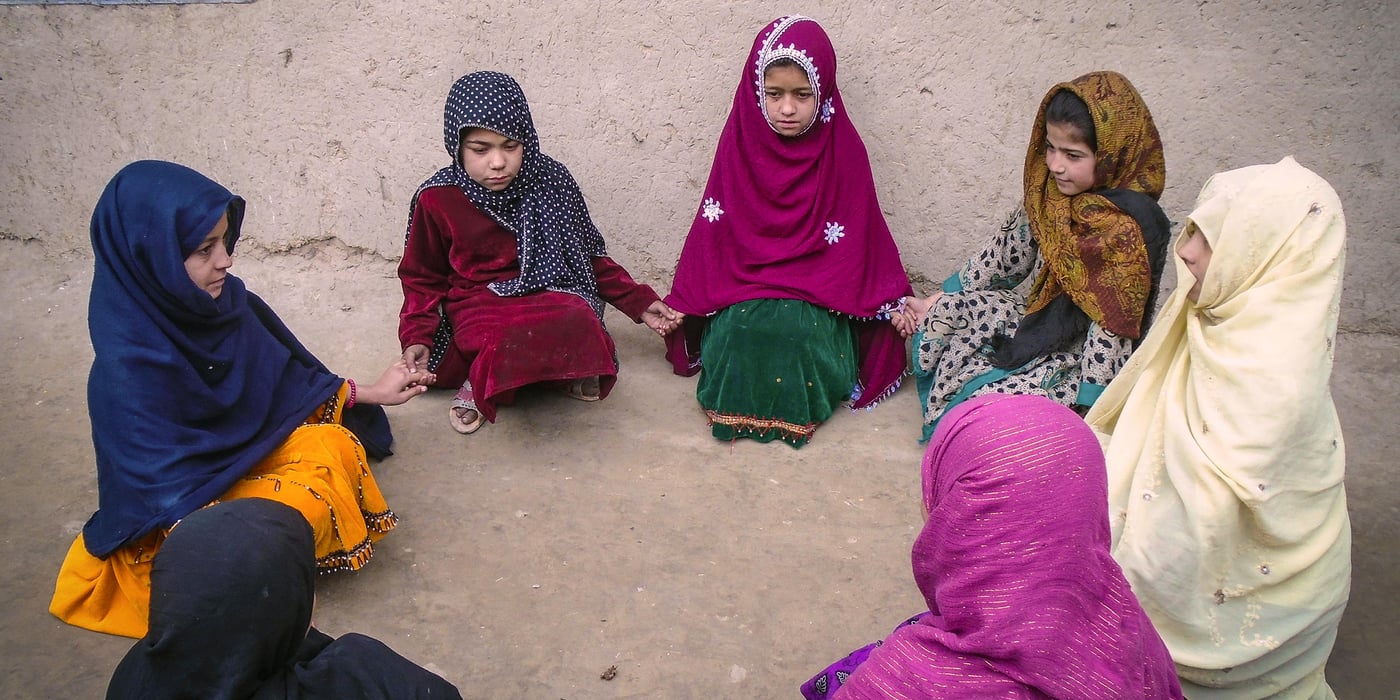
Bisraaj Bibi (35) had to flee her home nearly 7 years ago due to insecurity in her area in Khyber Agency of the Federally Administered Tribal Area (FATA). Remembering the ordeal she says:
“I had to walk for three hours with my husband and my four children to move to a safer place. One of them, Rehman Ullah, is physically handicapped. In Baz Gara we hired a car and reached Jalozai camp in Nowshera in Khyber Paktunkhwa province.”
Due to the harsh winter, Bisraaj couldn’t continue to live at the camp with her small children, so the family moved to a small village near by Peshawar. In the past years, her husband has not been able to find any permanent work and the financial pressure has forced them to move many times. They now live in a small home in an impoverished settlement in Peshawar where many other displaced families live.
It is mandatory for all tenants in Khyber Paktunkhwa province to have a rent agreement. The rent deeds also have to be verified by local courts and then registered at the local police station. This was a difficult process for Bisraaj Bibi whose husband had recently left for Bahrain to work as a labourer.
One of Bisraaj Bibi’s neighbours informed her about NRC’s Information, Counselling and Legal Assistance (ICLA) programme. She contacted NRC’s team and asked for help in obtaining the stamp paper for rent deed and getting it verified from the office of a Notary Public in the district courts.
NRC’s legal aid team helped register her case and get the rent deed verified by the local police station and the court. Bisraaj Bibi didn’t have to leave her home once for this task.

NRC's legal aid team helped Bisraaj Bibi get her rent deed so she could live in her home legally. Photo: NRC
“NRC’s information, counselling, and legal assistance programme helps the displaced population to understand their rights. It also enables them to attempt, exercise and claim to legal identity, civil documentation and housing, land and property rights,” says Liban Hassan Aw Said, project manager for ICLA Pakistan.
While dealing with Bisraaj Bibi’s case, the ICLA team found out about her disabled son, Rehman Ullah. The team informed her about the benefits a disabled child could get if he had a disability certificate, which would also help him get a special computerized national identity card (CNIC) for disabled persons in the future. This would make him eligible for different benefits like special quota for jobs for disabled people. It was therefore essential that she get a disability certificate for her child.
NRC took responsibility for getting a disability certificate for Rehman Ullah. After a doctor’s verification, NRC’s legal team processed her request with the government authorities and got her son the disability certificate. The entire process of rent deed verification and disability certificate was done free by NRC.
Facts about NRC’S Information, counselling and legal assistance programme in Pakistan
- The programme helps Afghan refugees and other displaced persons by providing them with information, case specific counselling and legal assistance related to civil documentation and housing, land and property rights.
- The programme also runs grievance desks for displaced people in Peshawar, DI Khan, Kohat and Kurram Agency and assists displaced population through an established referral system.
- In 2014, NRC assisted 27,048 (17,468 male and 9,580 female) vulnerable refugees, displaced people and returnees in FATA, Khyber Paktunkhwa and Balochistan provinces.
- NRC also provided training on Human Rights, Frontier Crimes Regulation (FCR), the Political Parties Act, peace-building, conflict resolution and Disaster Risk Reduction (DRR).




